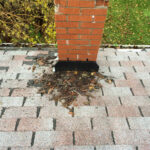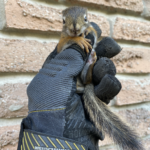Raccoon droppings can pose a serious health risk to pets, and it is important to take steps to prevent exposure. Here are some dangers of raccoon droppings for pets:
- Raccoon droppings can contain a variety of diseases: Raccoon droppings can harbor bacteria, viruses, and parasites that can cause serious illness in pets. Some of the diseases that can be transmitted through raccoon droppings include raccoon roundworm, leptospirosis, and salmonella.
- Raccoon droppings can be inhaled or ingested: When pets are outside, they may come into contact with raccoon droppings and accidentally inhale or ingest them. This can lead to infection, as the diseases can enter the body through the respiratory or digestive system.
- Raccoon droppings can contaminate food and water: If raccoon droppings are present in an area where pets are fed or watered, they can contaminate the food and water, leading to potential exposure.
- Raccoon droppings can cause allergic reactions: In some cases, pets may have an allergic reaction to raccoon droppings, which can cause symptoms such as sneezing, coughing, and difficulty breathing.
If you are concerned about your pet coming into contact with raccoon droppings, there are several steps that you can take to prevent exposure. Here are some tips to prevent pets from coming into contact with raccoon droppings:
- Keep pets indoors: The best way to prevent pets from coming into contact with raccoon droppings is to keep them indoors. This will prevent them from wandering into areas where raccoons are present, and will also prevent raccoons from entering your home and leaving droppings inside.
- Clean up droppings immediately: If you do find raccoon droppings on your property, it is important to clean them up immediately. Wear gloves and a mask to protect yourself, and use a disinfectant to kill any bacteria or parasites that may be present.
- Keep trash securely stored: Raccoons are attracted to food, so it is important to keep trash securely stored to prevent them from coming into your yard. Use sturdy, lidded trash cans and store them in a secure location, such as a shed or garage.
In conclusion, raccoon droppings can pose a serious health risk to pets. They can contain diseases that can be transmitted through inhalation or ingestion, and they can also contaminate food and water. It is important to take steps to prevent pets from coming into contact with raccoon droppings.









